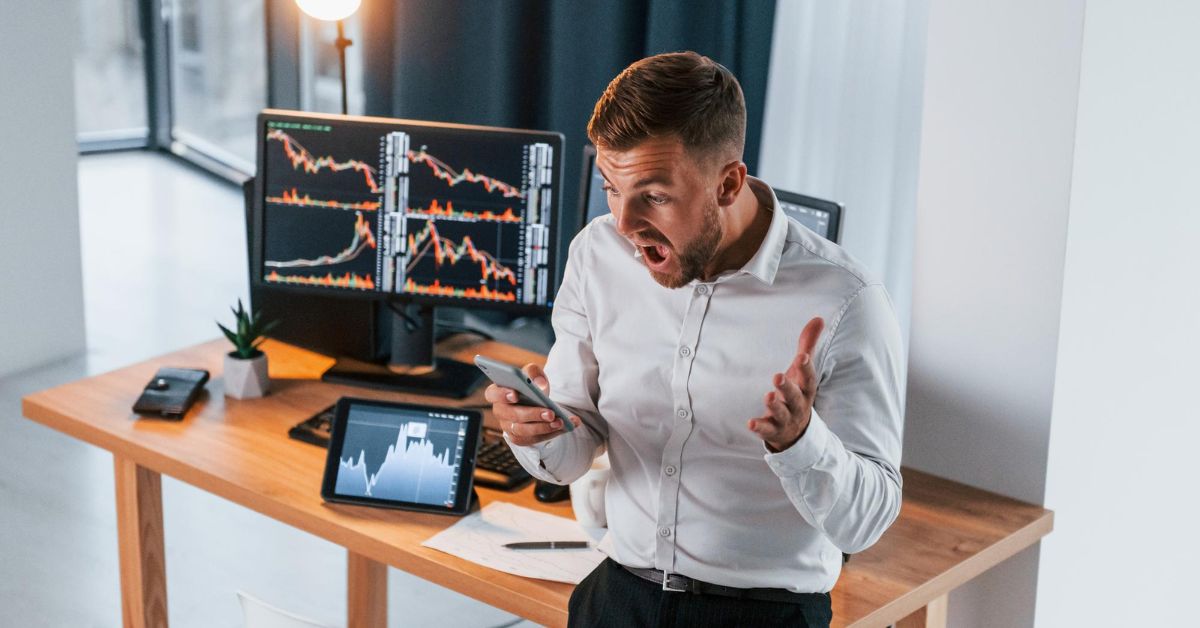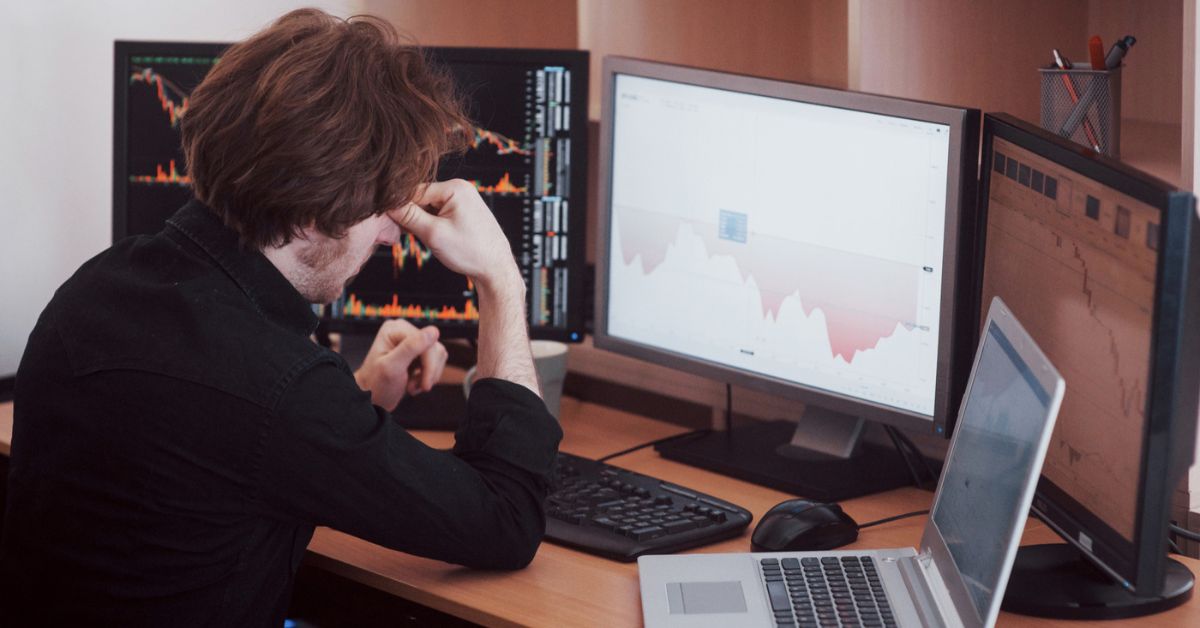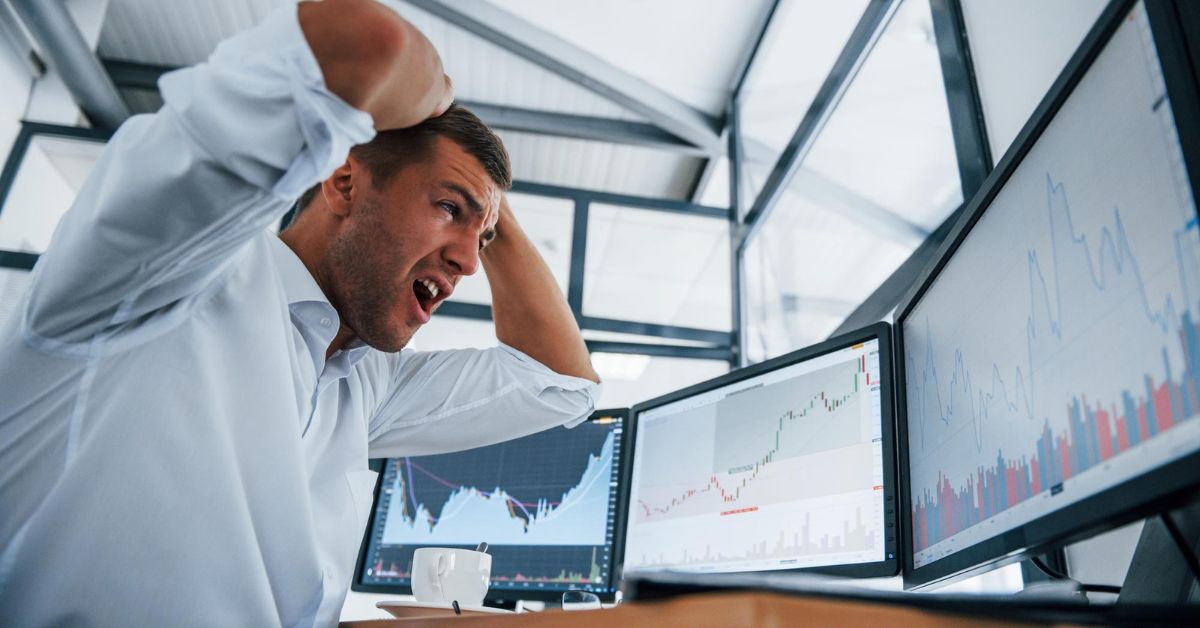Overconfidence is a common psychological phenomenon, especially in high-stakes environments like trading. If you overestimate your abilities, you can lose money. Understanding what triggers overconfidence is the key to improving your decision-making and achieving consistent success.
Prime XBT is a reliable crypto trading platform that offers excellent tools and insights for managing trading risks. With Prime XBT, traders can make informed decisions and avoid overconfidence-based mistakes. Maintaining a balanced approach to trading can lead to better long-term results. So, join PrimeXBT today! Use promo code PRIMEOTT to receive a +7% bonus on your deposit.
In this article, we will explore the psychological, social, and situational triggers of overconfidence. We will also examine its consequences and provide strategies to mitigate them. Understanding these factors will help traders make better decisions and achieve better results. Let’s dive in.
What is Overconfidence In Trading?

Overconfidence is when people believe they are better than they really are. In trading, this means accepting you will make the right choices more often than you do. This can lead to risky decisions and big losses.
Psychologically, overconfidence is linked to cognitive biases. A common bias is the “illusion of control.” This is when traders think they can predict market movements, even when they cannot. Many traders feel more confident in their abilities than is justified . Overconfidence can affect traders’ strategies.
They may take on more risk than necessary. Traders can make better decisions if they understand overconfidence. Recognizing when you feel overly confident can help you stay grounded and improve your trading outcomes.
What Triggers Overconfidence in Trading
Traders can make better decisions if they know what triggers overconfidence. Several key factors can inflate a trader’s confidence and lead to poor choices.
Past Successes
Previous profitable trades can create a false sense of skill. When traders experience success, they may believe they can replicate those results. This belief can lead to taking larger risks. Traders who have had prior success often take more risk in future trades.
Positive Feedback
Social validation from peers or media can also fuel overconfidence. When traders receive praise or recognition, they may feel more skilled than they are. This feedback can distort their view of their trading abilities. Positive reinforcement can sometimes increase risky trading behavior.
Limited Information
Trading without comprehensive data can lead to overestimating one’s skills. Many traders jump into trades without researching enough, creating an illusion of competence. Traders often underestimate risks when they lack critical data.
High Risk Tolerance
Traders with inflated self-perception tend to engage in riskier trades. They may think they can handle losses better than they actually can. This mindset can result in significant financial losses. Traders with high-risk tolerance can lose up to around 40% of their capital in a short time.
Traders can manage their overconfidence by identifying these triggers and making more informed decisions.
Types of Overconfidence Relevant to Traders

What type of overconfidence can trigger traders? Let’s see –
Overestimation of Ability
Many traders mistakenly believe their trading skills are better than they actually are. This overconfidence can lead them to take on excessive risks. Many traders think they can outperform their peers with overconfidence.
This belief can cause major losses when market conditions shift unexpectedly. Traders need to understand this bias so they don’t take unnecessary risks.
Overplacement
Overplacement specifically deals with the belief that one’s performance is superior to that of others. Traders might feel they are better positioned or have better insights than their peers, which can result in reckless behavior. A trader’s overconfidence often manifests when he compares himself to others and thinks he has an edge, which can be harmful.
Illusion of Control
This concept describes the false belief that one can control or predict market movements. It can lead to overtrading and poor decision-making. Traders who feel in control of market outcomes tend to engage in riskier trades. They fail to acknowledge the inherent randomness of the market. Acknowledging this can help traders make more balanced decisions.
Recognizing these types of overconfidence can help traders understand their biases. Awareness of these patterns enables them to make more informed trading decisions.
Consequences of Overconfidence in Trading

Overconfidence can significantly impact traders’ decisions and overall market dynamics. It often leads to irrational behaviors that can have serious financial consequences. Understanding these effects is crucial for traders who want to improve their strategies and results.
Increased Risk-Taking
Overconfidence can push traders to make risky decisions. For example, they may invest heavily in volatile assets without proper analysis. A study from the National Bureau of Economic Research shows that overconfident traders are more likely to take on excessive risks, which can lead to significant financial losses.
Poor Decision-Making
When traders are overly confident, they often ignore critical information, clouding their judgment and affecting their analysis. Research from the Journal of Behavioral Finance highlights that overconfident individuals frequently fail to consider alternative viewpoints. As a result, they may miss out on better investment opportunities.
Market Impact
Overconfidence among traders can influence overall market volatility. When many traders act on inflated confidence, it can create sudden price swings. According to the Financial Analysts Journal, overconfidence can cause bubbles and crashes in the markets.
Neglecting Risk Management
Overconfident traders often underestimate risks. They might disregard stop-loss orders, thinking they can predict market movements. To avoid stop-loss, you can use this stop-loss calculator for an effective trading plan. This neglect can lead to devastating losses if the market turns against them.
Confirmation Bias
Overconfidence can cause traders to seek out information that confirms their beliefs. This bias can cloud judgment and lead to poor choices, as traders may ignore critical data that contradicts their views.
Emotional Decision-Making
Emotions can amplify the effects of overconfidence. When facing losses, traders may become defensive, leading to impulsive decisions that further exacerbate their situation.
Being aware of these consequences is essential for all traders. When traders understand how overconfidence affects their trading, they’ll be able to make better decisions.
Identifying Overconfidence in Yourself
Recognizing overconfidence is the first step in managing it effectively. Here are signs and tools to help traders identify overconfidence in their trading behaviors.
Common Signs of Overconfidence in Traders

Overconfident traders often exhibit specific behaviors, like taking on high risks without thorough analysis. They might also ignore losses, assuming a turnaround will happen soon.
Additionally, traders who refuse advice or feedback may be displaying signs of overconfidence. Overconfident individuals believe in their abilities too strongly, impacting their objectivity in trading decisions.
Tendency to Ignore Risks
Overconfident traders might overlook or downplay risks. They tend to believe they can manage any trade, regardless of market volatility. This behavior leads to a higher likelihood of risky trades, which can result in significant losses.
According to the Journal of Economic Perspectives, overconfident investors underestimate potential losses, often leading to decisions that harm their portfolios.
Overestimating Skills and Predicting Outcomes
An overconfident trader might believe they can predict the market with high accuracy. This bias can result in taking on trades that are beyond their skill level, especially in volatile markets. They might attribute past success to skill rather than a favorable market, reinforcing overconfidence.
Limited Acknowledgment of Losses
Overconfident traders may struggle to acknowledge losses, seeing them as temporary setbacks instead of indicators of poor decisions. This mindset can make it harder for them to cut their losses, as they believe they’re just one step away from a comeback.
According to The Behavioral Economics Guide, overconfident individuals tend to hold onto losing trades, ignoring critical exit points.
Strategies to Combat Overconfidence in Trading
Overconfidence in trading can lead to costly mistakes. However, traders can adopt strategies to mitigate this bias and enhance their decision-making skills. Here are some effective approaches to combat overconfidence:
Trading Journal Analysis
Maintaining a trading journal can provide insights into trading patterns. Regularly reviewing past trades can help traders identify overconfident behaviors, such as risky trades or decisions without a full analysis. For instance, if traders notice frequent losses due to similar mistakes, it may indicate an overconfidence bias.
Using Self-Reflection Techniques
Practicing self-reflection allows traders to assess their motivations behind each trade. Before entering a trade, asking, “Is this based on analysis or confidence alone?” can help avoid impulsive decisions. Self-reflection exercises can be done weekly, encouraging traders to stay aware of their reasoning.
Embrace Humility
Traders should recognize and accept their limitations. Knowing that no one can predict market movements perfectly will help you stay grounded. Acknowledging mistakes allows for personal growth and improved trading strategies.
Continuous Learning
Ongoing education is vital in the trading world. Markets are always changing, and traders must stay informed about new strategies, tools, and market conditions. Regularly attending webinars, reading books, and following expert analyses can keep the knowledge fresh.
According to a study by the CFA Institute, continuous learning significantly boosts traders’ performance and decision-making abilities.
Seeking External Feedback
Engaging with mentors or participating in trading communities can provide valuable insights. Feedback from experienced traders can help identify overconfidence and offer different perspectives on market analysis.
Research from the Journal of Behavioral Finance indicates that external feedback helps traders make more balanced decisions.
Setting Realistic Goals
Creating achievable objectives is crucial for managing risk. Traders should set clear, realistic goals based on their risk tolerance and market conditions. Studies have shown that goal-setting improves focus and reduces impulsive trading behavior. It is easier to track progress and stay motivated if larger goals are broken down into smaller, actionable steps.
Behavioral Finance Tests
Some online tools and tests, like the Investor Behavior Assessment from financial institutions, can reveal biases, including overconfidence. These tests provide scenarios where traders can evaluate their likelihood of taking high-risk trades based on confidence alone. The results can help traders understand where they might be overestimating their abilities.
FAQs
How to identify overconfidence?
Identifying overconfidence in trading requires careful observation of behavior and mindset. Traders who often ignore risks or believe they can consistently predict market movements may be displaying overconfidence.
This can manifest as a tendency to take larger positions without adequate research or analysis. For example, if a trader has a string of profitable trades and starts to think they cannot lose, this is a red flag. Additionally, overconfident traders often dismiss feedback and alternative viewpoints from peers.
What is the root cause of overconfidence?
The root cause of overconfidence in trading can be attributed to various cognitive biases and psychological factors. One significant factor is the illusion of control, which leads traders to believe they can influence or predict market outcomes. A trader’s past success may reinforce this belief, as they attribute their gains to skill rather than luck.
This cognitive bias can create a false sense of security, causing traders to underestimate potential risks. Social validation, like getting positive feedback from peers or seeing others succeed, can also make you overconfident.
How to avoid overconfidence?
Avoiding overconfidence involves adopting strategies that promote self-awareness and humility. One effective approach is to embrace humility by recognizing that no trader can control market movements completely. Continuous learning is vital; traders should commit to ongoing education, whether through courses, reading, or joining trading communities.
This will keep them informed about market trends and enhance their skills. Seeking feedback from mentors or peers can also provide valuable perspectives, helping traders to adjust their strategies and expectations. Setting realistic goals is crucial in combating overconfidence.
Read More: How Do You Deal With Uncertainty In Trading
Conclusion
Overconfidence in trading can lead to significant losses and poor decision-making. By recognizing the signs and understanding its triggers, traders can adopt strategies to combat this bias. Acknowledging humility, seeking feedback, and setting realistic goals are essential steps.
If you find yourself struggling with emotional decisions like panic selling or FOMO, consider using automated tools. Tired of losing money due to panic selling, FOMO, overtrading, and bag holding? We recommend the Vestinda trading app. This app helps eliminate emotional decision-making with automated crypto trading strategies tailored to your needs.



